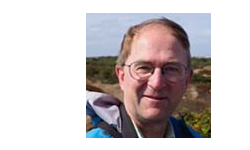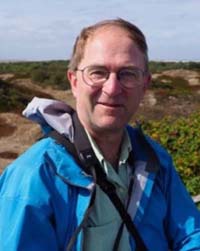
Dr. Wesley Hochachka – February 2025
7:00 pm, Tuesday, February 11, 2025
Online via Zoom, Free and open to the public
Registration required. Click here to register for the Zoom webinar.
Informing Basic Science and Conservation with Bird Watchers’ Observations (and Lots of Computers)
Formal bird monitoring programs, such as the North American Breeding Bird Survey are invaluable sources of information about where birds live and how their numbers have changed through time. However, the costs of running such programs mean that they cannot be run throughout the year or across very large numbers of locations. The large quantities of information being collected by participatory (or citizen) science projects, most notably by eBird, have the potential to fill in gaps in our knowledge of bird populations. Careful analyses are needed in order to separate changes in bird populations from changes in the behavior of the bird watchers who provide their observations. In his presentation, he will talk about some of the insights into bird populations that have been revealed from eBird’s data and the uses of these insights. Weekly maps of the distributions of birds provide information about areas of concentration and migratory movements, which have been used to design and implement conservation programs and to inform policy decisions. Estimates of local changes in population size (“trend maps”) complement the information provided by the Breeding Bird Survey. He will conclude by describing some of our ongoing and future work, and plans for making the insights from eBird’s data more widely and easily available to a variety of audiences.

Wesley Hochachka is a Senior Research Associate at the Cornell Lab of Ornithology, where he has worked since 1998. Originally from Alberta, Canada, Wesley obtained his BSc and MSc degrees from the University of Alberta, and his PhD from the University of British Columbia. During his formal training, Wesley was involved in field studies of birds, but his PhD research on Song Sparrows exposed him to the value of pre-existing data. From his PhD onward, Wesley has worked with increasingly large collections of data, and this experience brought him to the Lab of Ornithology, where he has mainly worked with Project FeederWatch, the House Finch Disease Survey, and eBird.


